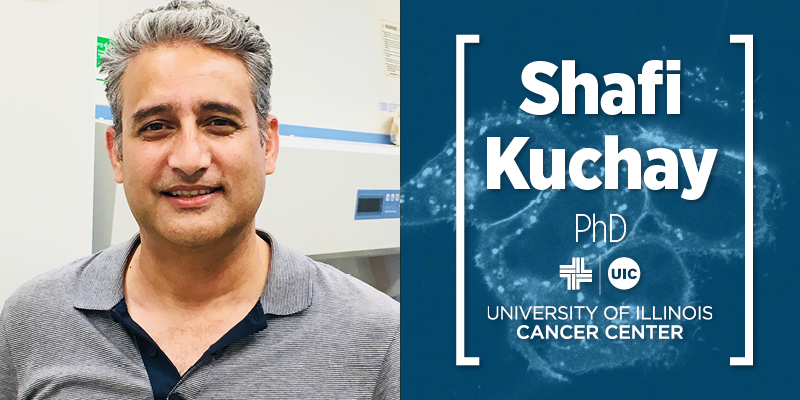
University of Illinois Cancer Center member Shafi Kuchay has received a five-year federal grant presented to outstanding investigators to further understand how cancer develops through the ubiquitin-pathway system, which regulates scores of cellular processes by ensuring timely and accurate protein removal when the proteins are no longer needed or when their function and/or structure have been compromised.
Cell membranes house critical molecular targets which function irregularly in diseases such as cancer, neurodegenerative, cardiac, and other disorders. They normally serve as the center of building protein communication networks, but diseases occur when the systems accumulate irregular amounts due to changes in their critical components. Kuchay’s work involves studying the ubiquitin-proteasome system (UPS), a highly conserved protein destruction system that swiftly, and with great precision, regulates the amount of protein targets in cells by modifying them with degradation markers (polyubiquitin chains) which subsequently are destroyed.
“While ubiquitin-proteasome system in general is well-studied, its role in regulating membrane proteins remains somewhat enigmatic,” said Kuchay, PhD, assistant professor at the University of Illinois at Chicago’s department of biochemistry and molecular genetics. “We are working to discover novel ubiquitin-pathway based mechanisms for the preservation of tumor suppressor and oncogene networks at membrane that will provide us with a comprehensive understanding of cancer development.”
The Maximizing Investigators’ Research Award, or MIRA, that Kuchay is receiving is supported by the National Institute Of General Medical Services of the National Institutes of Health under Award Number R35GM137452 (UIC IRB protocol number 2019-1107). The grant is funded at nearly $2 million.
